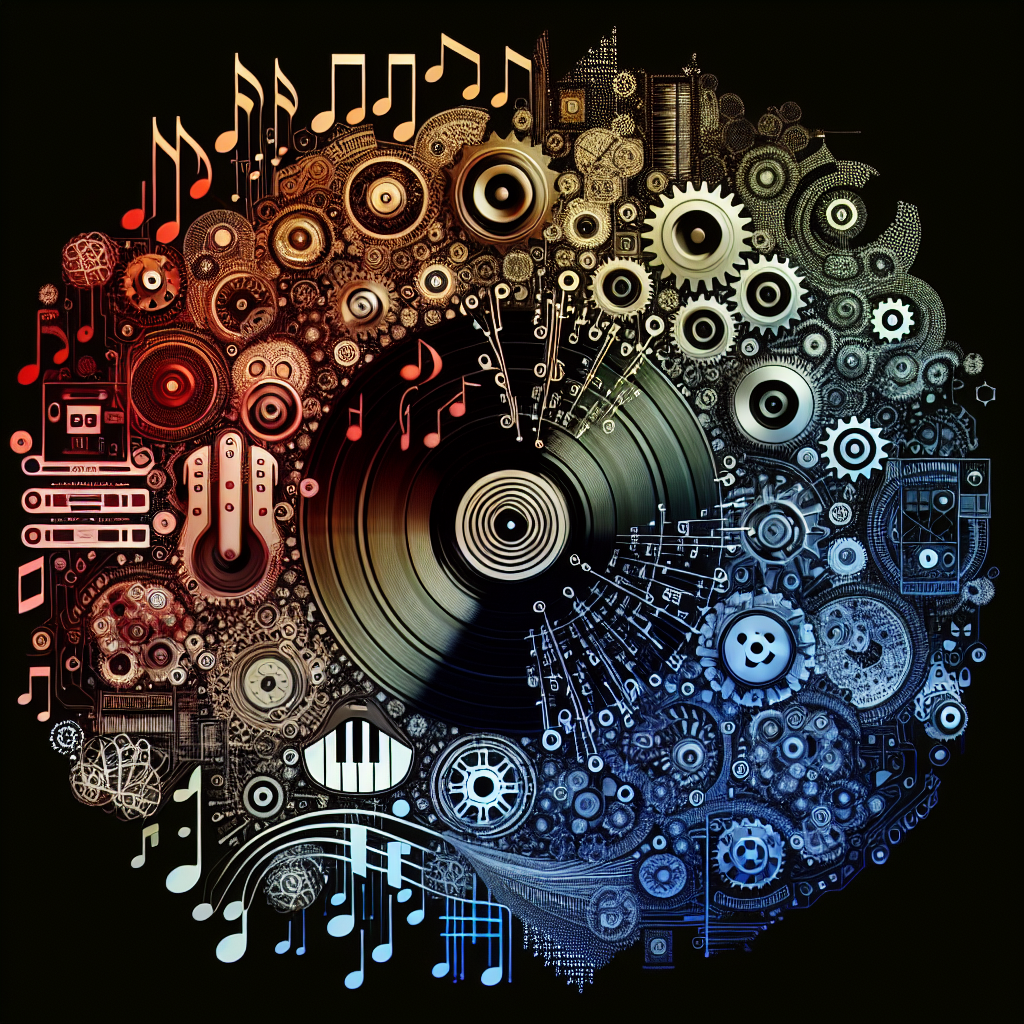In recent years, artificial intelligence (AI) has been transforming various industries, and the music business is no exception. AI is reshaping the music business model in many ways, from creating personalized recommendations for consumers to helping musicians produce and distribute their music more efficiently. In this article, we will explore how AI is revolutionizing the music industry and the implications it has for artists, record labels, and music streaming services.
One of the most significant ways AI is reshaping the music business model is through personalized recommendations. Music streaming services like Spotify and Apple Music use AI algorithms to analyze user data and provide tailored recommendations based on individual listening habits. This allows users to discover new music that aligns with their preferences, leading to increased engagement and retention on these platforms. By leveraging AI, streaming services can curate playlists and suggestions that cater to each user’s unique tastes, ultimately enhancing the overall music listening experience.
Another way AI is transforming the music industry is through music composition and production. AI-powered tools like Amper Music and AIVA are capable of generating original compositions based on input from users, such as mood, tempo, and genre. These tools enable musicians to quickly create high-quality music without the need for extensive training or technical skills. Additionally, AI can assist in mixing and mastering tracks, helping artists achieve professional-sounding results with minimal effort. By streamlining the music production process, AI is democratizing access to music creation and empowering artists to express themselves in new and innovative ways.
AI is also revolutionizing the way music is marketed and promoted. By analyzing data on social media, streaming platforms, and other sources, AI can identify trends and patterns that help artists and record labels target their promotional efforts more effectively. For example, AI can predict which songs are likely to become hits based on factors like listener engagement and sentiment analysis. This insight allows artists to tailor their marketing strategies to maximize exposure and reach a wider audience. As a result, AI is helping artists build their fan base and increase their visibility in a highly competitive industry.
Furthermore, AI is playing a crucial role in copyright protection and royalty management. With the proliferation of digital music distribution, tracking and monitoring copyright infringement has become increasingly challenging. AI-powered tools like Audible Magic and Verifi Media use advanced algorithms to detect unauthorized use of copyrighted music online. These tools help artists and record labels identify and take action against infringement, ensuring that creators are properly compensated for their work. Additionally, AI can streamline the royalty payment process by accurately tracking music usage and distributing royalties to rights holders in a transparent and efficient manner.
Despite the many benefits AI brings to the music industry, it also raises concerns about job displacement and artistic authenticity. As AI technology becomes more sophisticated, there is a fear that musicians and producers may be replaced by AI-generated music. While AI can assist in music creation and production, it cannot replace the emotional depth and creativity that human artists bring to their work. As such, it is essential for artists to embrace AI as a tool to enhance their creative process rather than as a substitute for their talent.
In conclusion, AI is reshaping the music business model in profound ways, from personalized recommendations to music composition and marketing. By harnessing the power of AI, artists, record labels, and music streaming services can improve the music listening experience, streamline production processes, and protect intellectual property rights. While AI presents challenges in terms of job displacement and artistic authenticity, it also offers opportunities for innovation and creative expression. As the music industry continues to evolve, AI will undoubtedly play a central role in shaping its future.
FAQs:
Q: How is AI used in music streaming services?
A: AI is used in music streaming services to analyze user data and provide personalized recommendations, curate playlists, and suggest new music based on individual listening habits.
Q: Can AI create original music compositions?
A: Yes, AI-powered tools like Amper Music and AIVA are capable of generating original compositions based on user input, such as mood, tempo, and genre.
Q: How does AI help in copyright protection and royalty management?
A: AI-powered tools like Audible Magic and Verifi Media are used to detect unauthorized use of copyrighted music online and track music usage for accurate royalty distribution to rights holders.
Q: What are the concerns surrounding AI in the music industry?
A: Concerns include job displacement, as AI technology becomes more sophisticated, and fears that AI-generated music may replace human artists. However, AI can also be seen as a tool to enhance creativity rather than as a substitute for talent.

